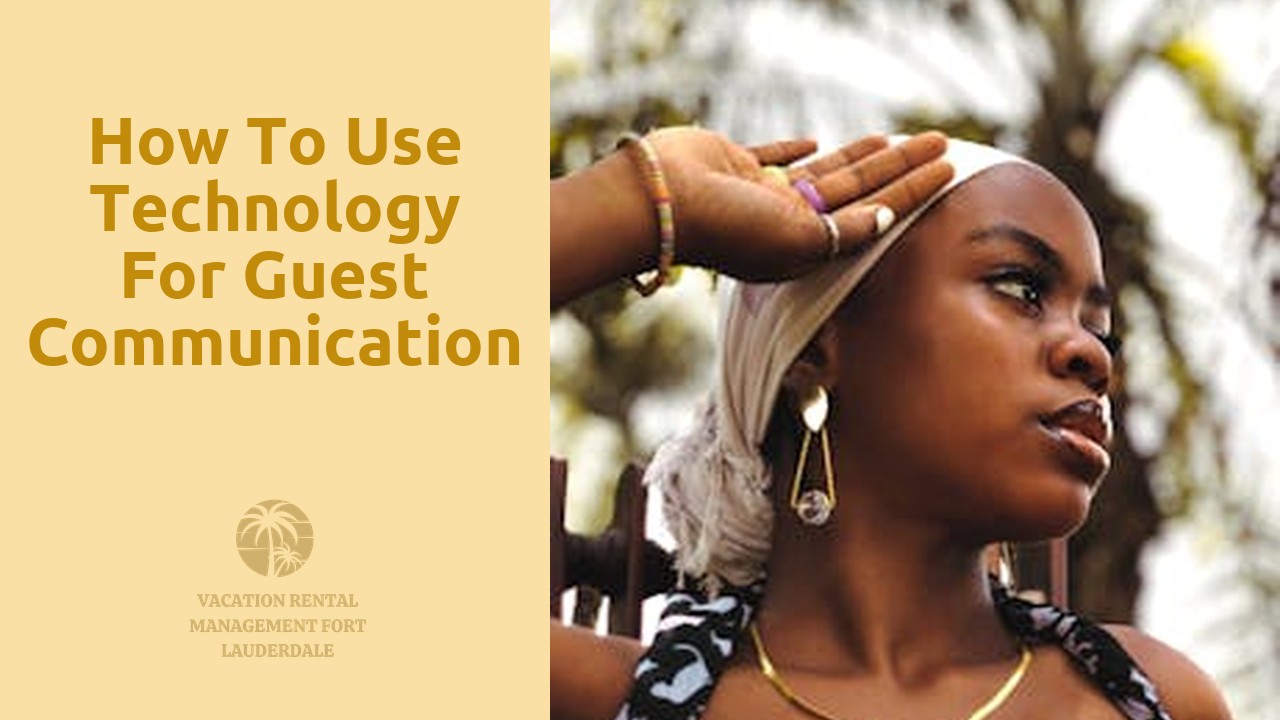
How to Use Technology for Guest Communication
Table Of Contents
Leveraging Social Media for Engaging Guests
Social media platforms have become powerful tools for hotels and hospitality businesses to engage with their guests. Utilizing platforms like Instagram, Facebook, and Twitter allows establishments to showcase their unique offerings, share updates, and interact directly with their audience. By posting captivating images and videos, hotels can create a visually appealing online presence that entices potential guests to explore further. Engaging captions, hashtags, and interactive features such as polls and questions can encourage guests to participate and feel connected to the brand.
In addition to sharing visually appealing content, social media provides a platform for hotels to gather feedback from guests. Listening to comments, reviews, and messages on social channels allows establishments to understand guest preferences, concerns, and suggestions. This real-time feedback loop enables hotels to adapt their services and offerings to better meet guest expectations. By actively engaging with guests on social media, hotels can build relationships, enhance guest satisfaction, and create a loyal fan base that advocates for their brand.
Building Relationships and Gathering Feedback
Building strong relationships with guests is essential for any successful hospitality business. Technology provides valuable tools to connect with guests on a personal level and create lasting impressions. By using platforms like social media and email marketing, businesses can engage with guests before, during, and after their stay. This continuous communication helps build trust and loyalty, ultimately leading to repeat visits and positive word-of-mouth marketing.
Gathering feedback from guests is crucial for understanding their needs and preferences. Technology offers various ways to collect feedback efficiently, such as online surveys, review platforms, and feedback forms on websites. Analyzing this information allows businesses to tailor their services to meet guest expectations and improve overall guest satisfaction. Engaging guests in the feedback process shows that their opinions are valued, fostering a sense of partnership between guests and the business.
Implementing Virtual Reality for Virtual Tours
Implementing Virtual Reality (VR) technology for virtual tours can significantly enhance the overall experience for guests. By offering a 360-degree view of your property, guests can immerse themselves in a virtual environment that provides a realistic preview of what to expect upon arrival. This interactive experience allows guests to explore different areas of the hotel, such as rooms, amenities, and common areas, from the comfort of their own homes. This can help guests make more informed decisions about their stay and increase their excitement and anticipation for their visit.
Furthermore, VR technology can also be used to showcase special features or upgrades that guests can opt for during their stay. By providing virtual tours of premium suites, exclusive amenities, or unique experiences, hotels can upsell these offerings more effectively. This not only adds value to the guest experience but also helps in boosting revenue streams for the property. Overall, implementing VR for virtual tours not only improves guest engagement but also contributes to a more personalized and interactive communication approach in the hospitality industry.
Enhancing Prearrival Experience for Guests
Enhancing the pre-arrival experience for guests is a critical aspect of ensuring their overall satisfaction. Utilizing technology in this phase can significantly impact how guests perceive and anticipate their stay. One way to enhance the pre-arrival experience is by providing a virtual tour of the property through virtual reality (VR) technology. This allows guests to immerse themselves in the environment and get a realistic preview of the accommodations, amenities, and surroundings.
Additionally, using text messaging as a means of instant communication can further elevate the pre-arrival experience. Sending personalized messages to guests with relevant information such as check-in procedures, weather updates, and local recommendations can help them feel valued and well-informed. By leveraging technology effectively in the pre-arrival phase, hotels and accommodations can set a positive tone for the guests' stay right from the start.
Using Text Messaging for Instant Communication
Text messaging has emerged as a powerful tool for instant communication in the hospitality industry. Hotels and resorts are increasingly utilizing this technology to swiftly connect with guests, providing a convenient channel for inquiries, requests, and updates. By leveraging text messaging, establishments can offer a seamless and efficient communication experience that enhances guest satisfaction.
This approach allows guests to seek assistance or make reservations conveniently, without the need for lengthy phone calls or waiting times. Additionally, text messaging serves as a personalized touchpoint, allowing hotels to engage with guests in a more direct and tailored manner. Moreover, by sending timely alerts, promotions, and updates via text, establishments can keep guests informed and engaged throughout their stay, fostering a stronger connection and ensuring a memorable experience.
Sending Alerts, Promotions, and Updates
In the modern age of hospitality, utilizing text messaging for sending alerts, promotions, and updates to guests has become a powerful tool in enhancing their overall experience. By delivering timely information directly to their mobile devices, establishments can engage with guests seamlessly and effectively. Whether it's notifying guests of special promotions, informing them of upcoming events, or simply providing helpful tips, text messaging is a direct and efficient method of communication.
Moreover, sending alerts, promotions, and updates via text messaging allows hotels and resorts to stay connected with guests throughout their entire stay. This continuous engagement helps build loyalty and encourages repeat visits. Additionally, personalized messages tailored to individual guest preferences can create a sense of exclusivity and make guests feel valued. By incorporating text messaging into their communication strategy, hospitality businesses can foster stronger relationships with guests and cultivate a memorable and positive experience.
Related Links
What Guests Expect from CommunicationHow to Improve Communication with Guests
Roundup of Guest Communication Strategies
Review of Guest Communication Tools
Top Tips for Effective Guest Communication
The Evolution of Guest Communication